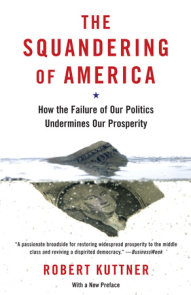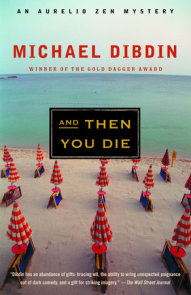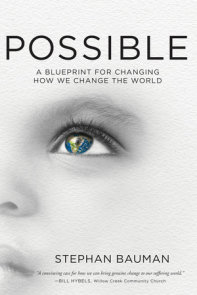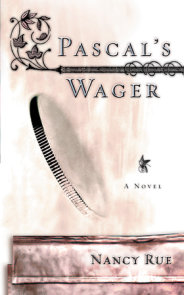READERS GUIDE
Questions and Topics for Discussion
INTRODUCTION
“The mud swelled and shrank round the house, dislodging the tiles on the roof and knocking the chimneypot on the huh, as they say in Norfolk. Inside, the floor buckled on imaginary tree roots.” This is the house in which Goose lives, in which her daughter, Lil’, is born, and which Pip, the narrator of Jeremy Page’s novel Salt, comes to know when he runs away from his father. Built on uncertain ground, it is a fitting home for this family of marsh folk. “It ain’t right,” says a friend much later in the novel, “livin’ on land that ain’t really land at all.”
Pip tells the story of three generations of his family, but the telling is itself an uncertain enterprise, connected as it is to the land on which it takes place, a salt marsh on the North Sea coast of England and covering events he did not witness. He must rely on the stories of others, especially his grandmother Goose, with whom the tale begins—but how much is story? How much is fact? How much is true?
Salt is set in a landscape in which its inhabitants feel a constant sense of strangeness, of dislocation, and they try to hold on to or understand things that are not, ultimately, to be controlled. Clouds that change and evaporate. Boats that are at the mercy of volatile waters. Fireworks and fire that can all too suddenly destroy. Goose reads the clouds in the sky, often not liking what she sees, but by interpreting them she believes she can heed their warnings. Boats, in which so many characters take refuge or solace, are lost (Pip’s grandfather’s boat Pip—or is it?), or wrecked (the Hansa, the Thistle Dew), or made of wrecks (the twins’ Bastard). Even the Mary Magdalene, the cheaply bought boat beloved by Lil’, who paints it with clouds and tries to take Pip and Elsie away in it, gets stuck in a channel where it can go no farther. Fire, the favorite element of Pip’s firework-making uncle, Kipper, is also threatening—”fire coming for me, always,” says Pip. But although it can destroy the evidence, as when Pip sets fire to his grandmother’s belongings—including, apparently, the fabled Pip—the stories themselves will live on.
By trying to tell his family story, Pip strives to control something unwieldy and elusive: legends, gossip, stories that are often undermined by evidence. His telling is full of uncertainty, shifting chronology, inconsistent tenses, speculation, and imagination. It is all true and vivid to him even as he questions its accuracy, even as he fears that “my grip on what was real had slipped.” The stories he had been told “had become more safe and familiar and real than the last few months of my life.” Pip has grown up not speaking a word, communicating only by writing in a notebook he carries around his neck. Yet it is through words that he tries to hold on to the things that he least understands, that he cherishes the most. He vividly renders the image of the last trace of his mother, her footprints in the snow on the frozen river, which melted so quickly, disappearing as surely as she herself did. When he wants to feel close to his mother, he thinks of her in the most fleeting of moments, at which he was not even present. But he never stops trying to see her, to fix her in his mind and in the story, and this happens, too, as he returns again and again to the mystery of Elsie, always beyond his reach, her place in his life never to be resolved.
“You keep on going” are Goose’s clearest words of advice to Pip. It’s all one can do. And Pip realizes that the stories, however uncertain, however unfixed despite his attempts to fix them in words or to destroy the evidence, will survive. The stories are as much a part of the landscape as the salt left behind by the ebbing tide.
ABOUT JEREMY PAGE
Jeremy Page lives in London, where he has worked as a script editor for Film Four, the filmmaking division of the UK’s Channel Four. Salt is his first novel.
A CONVERSATION WITH JEREMY PAGE
Q. The landscape that plays such an important role in Salt—the vast, flat salt marsh, seemingly on the edge of the world—is portrayed so dramatically. What role has this landscape played in your life?
A. I think to a large extent it formed me. Anyone who grows up next to the sea is faced with a frontier of sorts, between land and nothingness, and this continually challenges you. I fully appreciated this when I first moved away and lost the sea’s horizon—I felt pretty much without anchor then, away from the edge. And the edge of Norfolk is a particularly intriguing one—the marshes are muddy, salty, with odd plants and wildlife, strange tidal flows, you often can’t see the sea but can hear it—it seems to be made of contradictions, all adding to the sense of place, which, ultimately, reflects the characters who live there. Norfolk’s known for the eccentrics who’ve washed up on its beaches.
Q. Many of the characters in Salt run away, and certainly many people in real life who have grown up in small towns or stifling environments have escaped them (or yearned to). Did you wish to escape the place where you grew up? How do you feel about it now?
A. I never wished to escape it but I always knew I’d leave, and for many years I’ve enjoyed the tension of being in a kind of exile from the place where I grew up. Landscapes and environments where we choose to live are complicated issues for most of us and are continually in a state of flux. I live in a very vibrant part of London, which I am able to miss just as much as the wildness and emptiness of East Anglia.
Q. You have given Pip a narrative voice of such eloquence and power. How do you reconcile that with his lack of speech? How do you imagine him forming the words of his narration? How do you imagine your readers responding to him?
A. I always wanted a very direct relationship between the narrator and reader, and Pip’s lack of speech goes a long way to achieving this because it evokes a certain intimacy and conspiracy. His lack of speech has ostracized him, but he’s found expression in writing, and it’s only through writing about the largely verbal history of his family that he might understand it.
Q. How has your work as a script editor informed your fiction writing, or not? Which requires more discipline? Which allows more freedom?
A. The two disciplines work quite well together. Working in film can be a wonderfully collaborative process where, if the team is right, the creative spark is irresistible. Saying that, however, film is open to much more compromise and is directed by many aspects of finance and personality, not all of which is good for the script. Novel writing is much purer in form, free from many of these restraints and, as a result, feels bordered only by your own limits. And finding your limits and writing near to them is the interesting part.
Q. The novel has a number of vivid recurring motifs—clouds, fire, smoke, boats—but you have chosen Salt as its title. Can you talk a little about its meaning??
A. I was attracted to “salt” as the title for a variety of reasons. I like that salt has the power either to preserve or destroy—salt will preserve meat and fish, but destroy the wood or metal it’s kept in. We need it, but in moderation. I think that is how I’ve always felt about our own family histories. Salt’s a significant part of the texture of the Norfolk marshes. It takes a lot to wash it off you when you leave. The novel is also a rite of passage, where you earn your salt. Salt is, after all, where we get the wordsalary from.
Q. Your characters seem rarely to think about the world beyond north Norfolk, but when they do, they look far, imagining Sputnik 2, or watching the 1969 moon walk on television. Why would people who seem so insular be fascinated by doings in outer space but not necessarily think about, say, London?
A. Outer space is a lot closer to Norfolk than London is!
Q. Pip speculates and wonders a great deal about certain facts and truths. Many of these questions are never clearly resolved (notably Elsie’s origins and her fate). This gives your readers plenty to ponder. How did you decide on what parts of the story would remain ambiguous? Have you resolved them in your own mind?
A. I have resolved them in my own mind, but I really think that my version of the novel shouldn’t be in any way definitive. If readers come to their own conclusions those are just as valid as mine. My part in this novel finished when I stopped writing it—and that’s the point where the reader creates her own world. Most of the ambiguous parts of the story are also the most emotional sections. I think our collection or recollection of facts in emotional times is necessarily ambiguous.
Q. Do you think you will set another novel in the Norfolk salt marsh?
A. The novel I’m currently writing (in the shed at the bottom of my garden!) is saltier than the first—it’s largely set at sea. There might be the odd whiff of the salt marsh in it.
DISCUSSION QUESTIONS




















